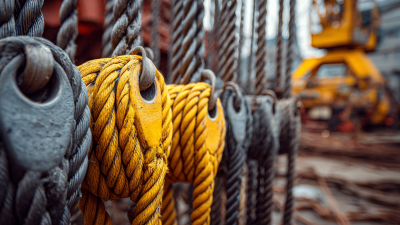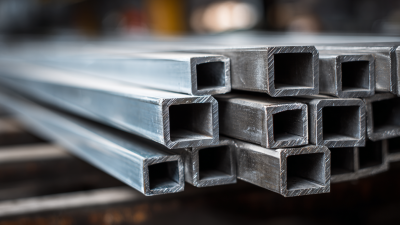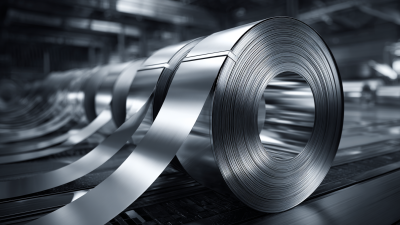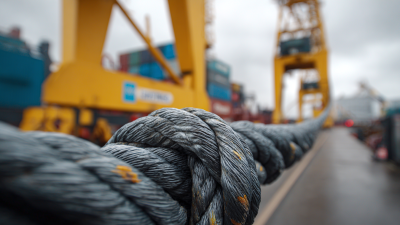
Leave Your Message

In the realm of industrial applications, the choice of materials is crucial to ensuring durability, efficiency, and safety. One of the most popular materials in this sector is 304 stainless steel, particularly when it comes to flanges. 304 stainless steel flanges have garnered significant attention due to their impressive properties and benefits that cater to various industrial needs. This article explores the top five benefits of using 304 stainless steel flanges, highlighting why they are often the go-to choice for manufacturers and engineers alike.
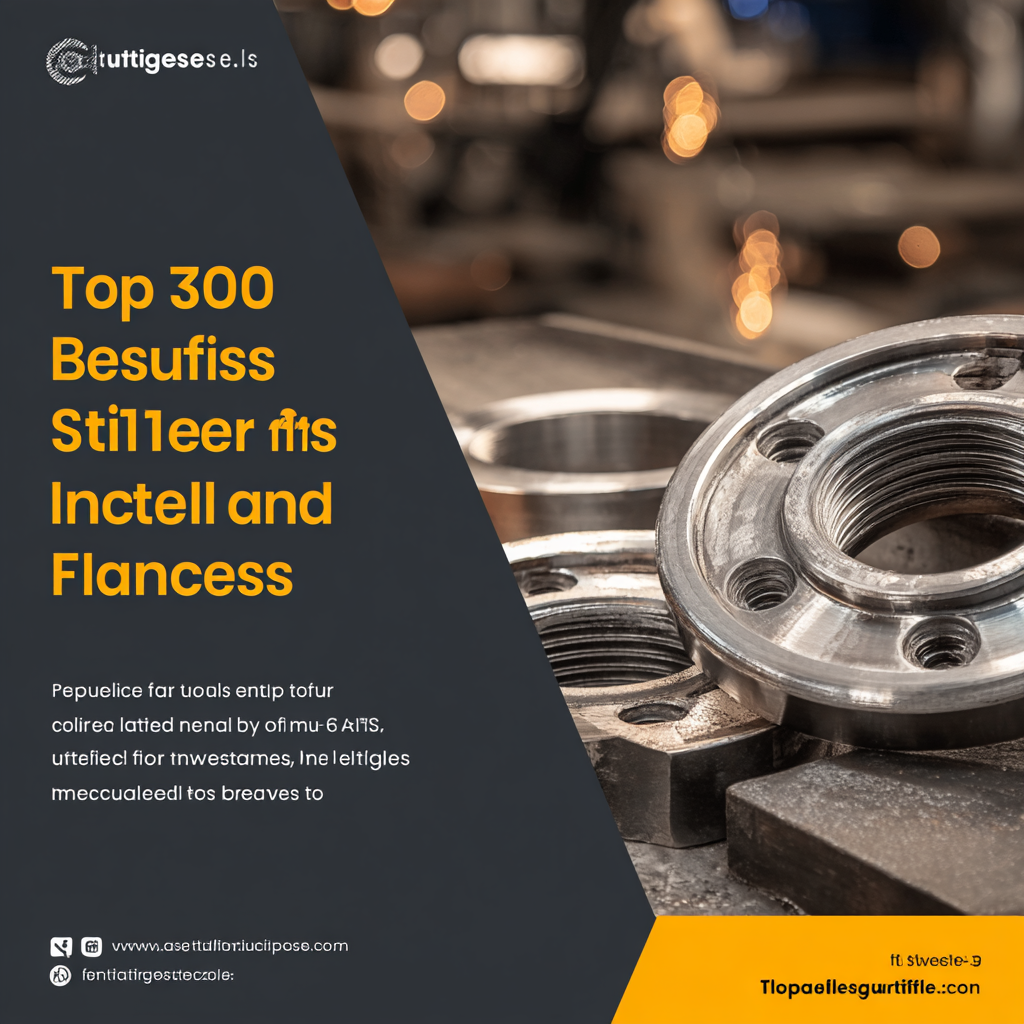
The robust composition of 304 stainless steel provides exceptional resistance to corrosion, making it ideal for use in harsh environments where exposure to weather and chemicals is a concern. Moreover, these flanges offer excellent mechanical strength, ensuring that connections remain secure under pressure. Additionally, 304 stainless steel flanges are relatively easy to fabricate and install, contributing to efficient project timelines and reducing overall costs. As we delve deeper into each benefit, it becomes evident that 304 stainless steel flanges are not only a reliable choice but also a strategic investment for long-term industrial success.
304 stainless steel flanges are widely appreciated in industrial applications primarily due to their exceptional corrosion resistance. This characteristic is particularly vital in environments that expose materials to moisture, chemicals, and varying temperatures. The inherent chromium-nickel composition of 304 stainless steel forms a protective oxide layer on the surface, which prevents corrosive substances from penetrating and degrading the material. This not only prolongs the lifespan of the flanges but also ensures the integrity and safety of piping systems.
Furthermore, the corrosion resistance of 304 stainless steel flanges contributes to lower maintenance costs and reduced downtime in industrial operations. By opting for these flanges, industries can minimize the need for frequent replacements or repairs caused by corrosion-related failures. This reliability translates into enhanced operational efficiency, allowing companies to focus on productivity without the constant worry of system vulnerabilities resulting from rust or deterioration. Overall, the corrosion-resistant properties of 304 stainless steel flanges make them an ideal choice for demanding industrial environments.

304 stainless steel flanges are increasingly becoming the material of choice in industrial applications due to their superior durability and longevity. According to a report by Freedonia Group, the demand for stainless steel products, including flanges, is expected to grow by
4.2% annually, driven by their resilience in harsh environments. One of the critical advantages of 304 stainless steel is its excellent corrosion resistance, which is vital in industries such as chemical processing and oil and gas. This resistance results in fewer replacements and maintenance costs, effectively enhancing the longevity of industrial systems.
Additionally, industrial systems that utilize 304 stainless steel flanges benefit from their strength and ability to withstand high temperatures and pressures. Research published by the International Stainless Steel Forum indicates that stainless steel can maintain its structural integrity even in extreme conditions. This reliability translates to fewer breakdowns and downtime, further reinforcing the importance of using 304 stainless steel in critical applications. Implementing 304 stainless steel flanges not only contributes to the operational efficiency of machinery but also ensures a longer lifespan for various industrial components, making them a sound investment for manufacturers.
Cost-effectiveness is a crucial factor in industrial applications, and using 304 stainless steel flanges is a strategic choice that leads to long-term savings. These flanges offer exceptional resistance to corrosion and rust, which significantly reduces maintenance costs over time.
Unlike flanges made from lower-quality materials, 304 stainless steel retains its integrity in harsh environments, preventing costly replacements and downtime. The durability of these flanges ensures they can withstand the rigors of various processes, making them a reliable option for industries such as food processing, pharmaceuticals, and petrochemicals.
Moreover, while the initial investment for 304 stainless steel flanges may be higher compared to alternatives, the longevity and lower lifecycle costs make them a more economical choice in the long run. Their ability to maintain performance without frequent repairs or replacements translates into substantial savings, which can outweigh the initial expense. By choosing 304 stainless steel flanges, businesses can optimize their operational efficiencies, paving the way for improved profitability and a stronger return on investment.
304 stainless steel flanges are a preferred choice in various industrial applications due to their remarkable versatility. Commonly used in industries such as food processing, pharmaceuticals, and petrochemicals, these flanges offer a corrosion resistance that is crucial for maintaining product integrity and safety. According to the Global Stainless Steel Flanges Market Report 2022, the demand for 304 stainless steel flanges has shown a steady growth rate of approximately 5.3% annually, highlighting their significance in modern industrial practices.
One of the notable advantages of 304 stainless steel is its ability to withstand high temperatures and pressure without compromising performance. In environments where hygiene is paramount, such as in food and beverage processing plants, 304 stainless steel flanges ensure that there is no leaching or contamination, making them an ideal choice for sanitary applications. Furthermore, their ease of fabrication allows for quick installation and maintenance, reducing downtime in production lines.
Tips: When selecting 304 stainless steel flanges for your project, always consider the specific environmental conditions and compatibility with other materials. Additionally, investing in high-quality flanges can lead to long-term cost savings by reducing maintenance and replacement needs.
304 stainless steel flanges are invaluable in industrial settings, particularly when it comes to maintenance and installation. Their non-corrosive properties make them easy to clean and maintain, significantly reducing downtime. Regular maintenance routines are simplified, allowing facilities to keep operations running smoothly. This ease of maintenance translates into enhanced performance, as equipment is less likely to suffer from wear or failure due to poor upkeep.

When installing 304 stainless steel flanges, it's crucial to ensure proper alignment and torque specifications. Tips for a successful installation include thoroughly cleaning the flange surfaces and checking for any signs of damage before assembly. Additionally, using appropriate gaskets can help prevent leaks, further contributing to the integrity of the installed systems.
Employing 304 stainless steel flanges not only boosts performance but also simplifies the entire maintenance process. By choosing these durable flanges, industrial operations can achieve a more efficient workflow, ultimately leading to greater productivity and reduced long-term costs. Make sure to assess the condition of the flanges regularly to maintain peak performance and extend their lifespan.

